Simon Rattle: ‘So many musicians are leaving…’
mainA PR-pumped story in today’s Observer urges the UK Government to bail out freelance musicians ‘or risk losing them forever’.
Sir Simon Rattle is quoted as saying, ‘While some of us working in established institutions have been fortunate to be given grants that help us to hang on, the vast majority of freelancers are in a desperate situation,
‘My worry is that so many musicians will be forced to leave the profession that we will not be able to return to anything like the cultural life that we enjoyed previously. And that this exodus is happening right now, and that it will not be noticed until it is too late.’
All true, and necessary, and very worrying indeed.
But the same concerns apply to every other freelance occupation – anaesthesiologists, novelists, photographers, plumbers, journalists, dental nurses, barristers, actors, interior designers and more. Nobody is raising an outcry on their behalf.
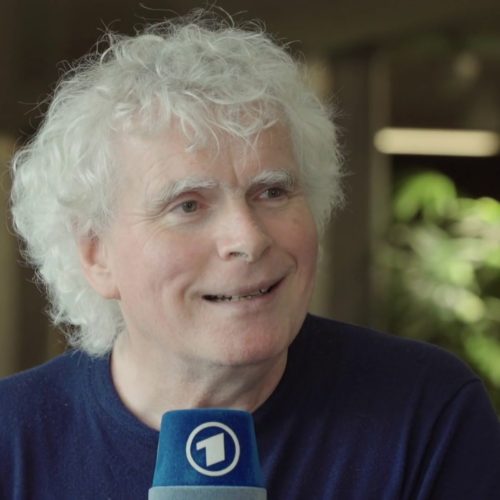

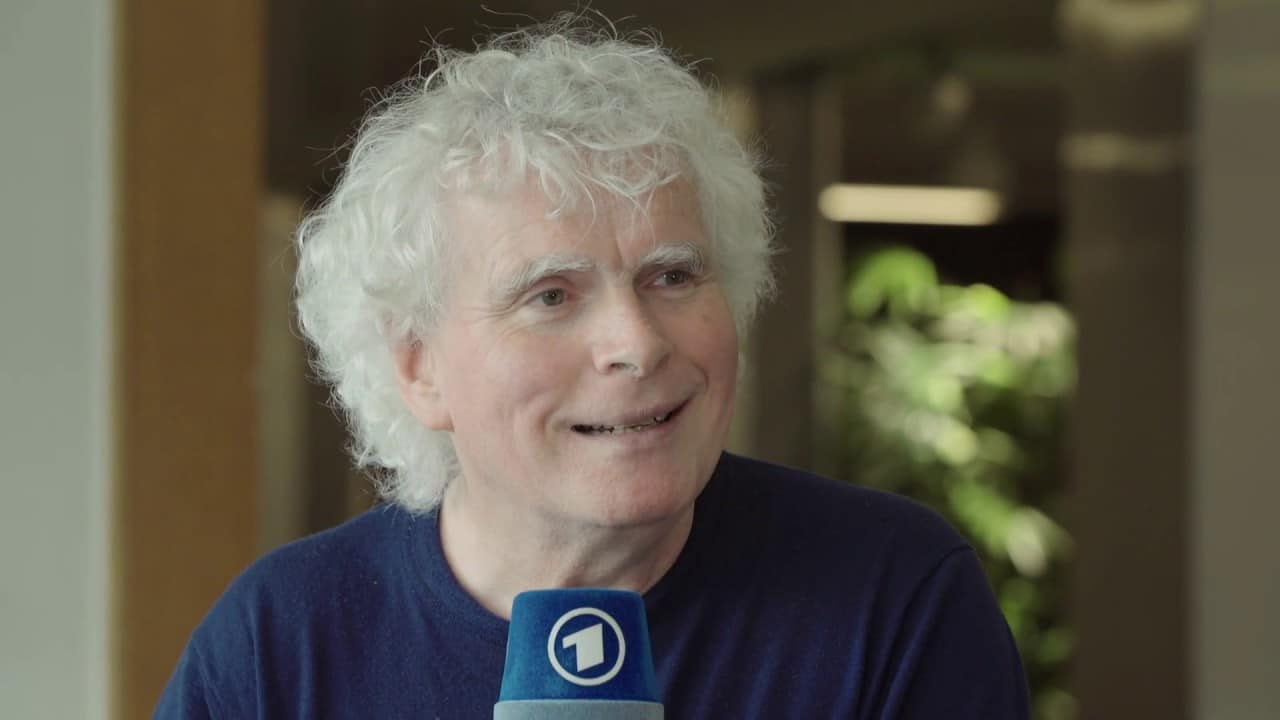
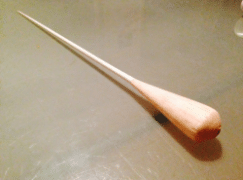

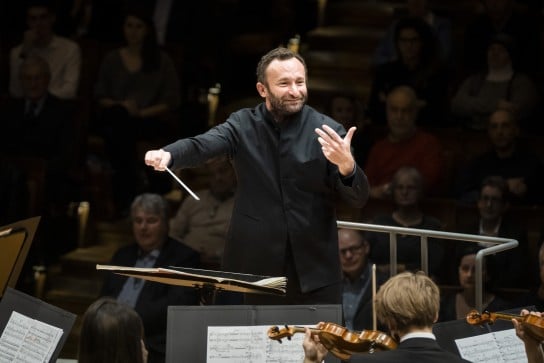
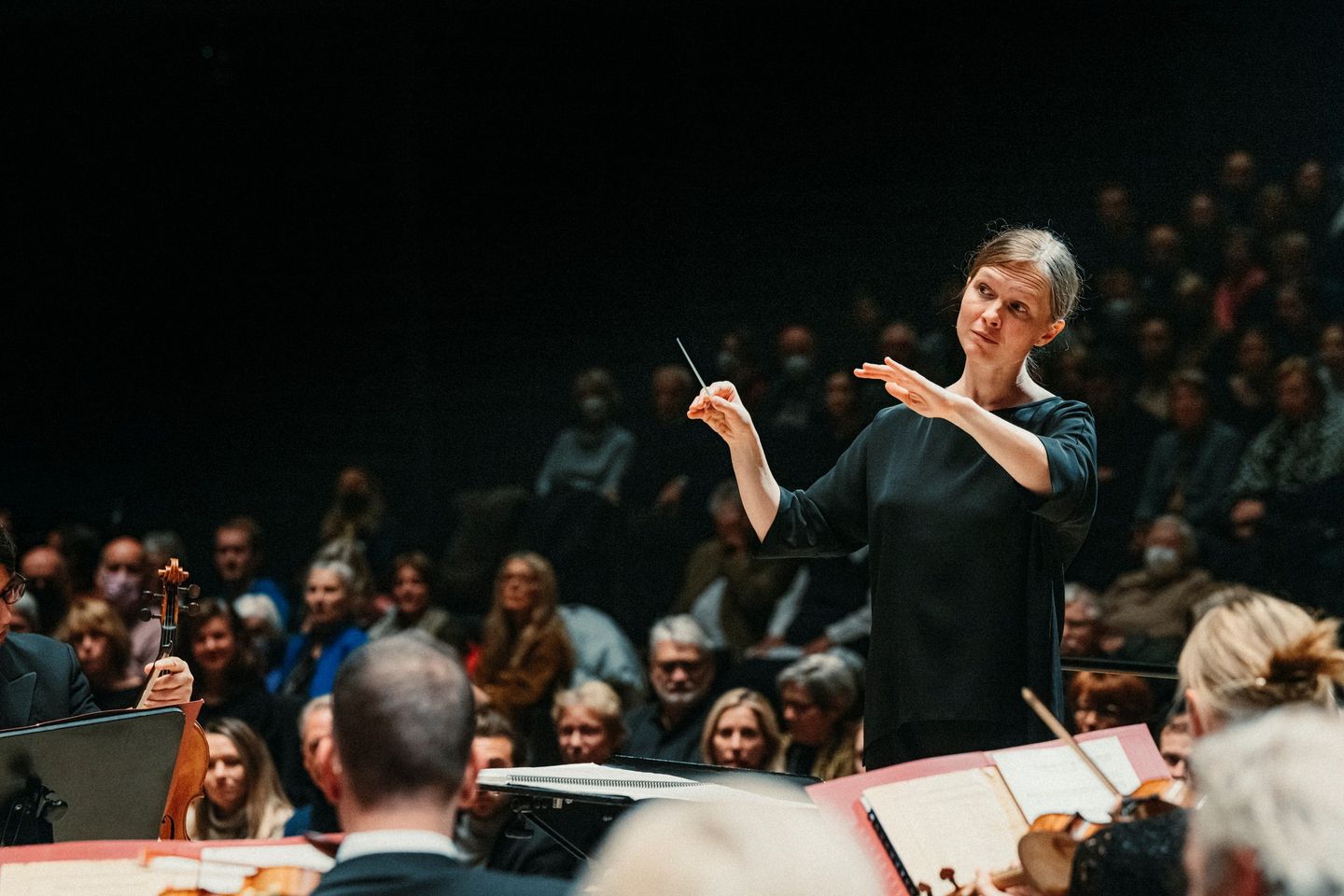
One doesn’t need to study 20 years to become a plumber.
No, but you need 20 years of working as a plumber to keep your skills up, be seen you know your job, seen to be in demand so much sought after, and are safe so long as people need plumbers, can afford them if the demand is there. It is the very act of doing your job that is vital for survival and keeping skills up. Very hard when there is no work unless you do it for peanuts or nothing. I have spent a lifetime studying singing both to be able to perform and to teach regardless of this pandemic. But no way can I now go back to what I left. It’s simply not there.
A gas fitter (Corgi registered) plumber has to do training and safety courses regularly and be certificated, plumbing is not an exact science, learning by experience, my plumber told me it took him 20 years to learn about boilers properly.
“But no way can I now go back to what I left. It’s simply not there.”
Indeed! The industrial deaths that governments have created across the globe are far worse than the morbidity.
Being paralyzed by fear has put so many into more dire issues en masse like poverty and homelessness which is leading to growing numbers of suicides.
….. and the government hasn’t stopped plumbers working!
Most plumbers are self employed and not VAT registered. If they don’t work they get no money, sick pay or government handout. They work in all weathers. They could not stop plumbers working it is an essential occupation, try having Christmas with no boiler, hot water and leaks!
You can do without concerts for the moment as we have CDs, radio and DVDs I think the pandemic could lead to more music on telly, if someone set up a pay to view or contract with BBC etc, that way musicians might get an income.
But how long is “for the moment”, exactly? Here in the UK, we were told initially (back in March, that is) that the ‘lockdown’ would be under a month, or maybe two months at most. In the event, it was not until mid-August (that is, almost five months after ‘lockdown’ had begun) that in-person concerts became somewhat possible again (albeit with limited audiences).
But we live in an age when one must signal a mindless faith in the equality of absolutely everything.
I never realised that a music degree, even with post graduate study took 20 years.
Do you imagine that music students first start studying their instruments during their freshman year of college?
No one is claiming that any degree takes 20 years. But if you add the years that people studied their instrument before getting into college it does indeed come quite close to 20 for a majority of orchestral musicians.
AND most musicians (salaried OR freelance) need to keep practising to maintain their standards.
I’ve always thought so. But society doesn’t necessarily monetarily reward us for our efforts in that respect – mainly in the cultural sense. The cultural value of musicians is embedded within the cultural classes; they are considered high value ‘assets’ but, outside of Europe, this rarely translates into commensurate rates of pay!!
A plumber has no cultural value but social and economic value. That last isn’t undesirable; when my drains are blocked I don’t ask my plumber to whistle Beethoven. But I simply couldn’t be without my plumber for practical and health reasons.
Which part of Europe offers “commensurate rates of pay” for musicians, exactly? It is definitely not London…
Ellingtonia: Either you were clumsily sarcastic or just plain ignorant. An istrumentalist starts usually playing at age 5 and practices his/her instrument between 2-8 hours daily throughout a lifetime. You can try to count the hours it takes, in a music world of strong competition.
A classic ballet dancer starts training at age 4, trains if possible even more daily hours than an instrumentalist, and after attempting an even harder world of competition and physical ordeal, retires around the age of 36 – all for you sitting there yawning and thinking it all is about a world for the “privileged” and for “the elitists”.
In a sense, a music degree does take 20 years.
Learning to be a professional-level classical musician can take 20 or more years. Most professional classical musicians start their music training in grade school or earlier. The music degree, if obtained, is the culmination of a long process that started long before matriculation. (Some classical musicians jump into careers without completing college degrees.)
I cannot think of a single household name classical musician who started learning music from scratch as a college freshman.
Without any work on for artists your comments are without merit.
Name one prominent professional classical musician who started learning music from scratch as an adult. Not someone who maybe didn’t take it seriously when young, not someone who took a break from music then returned to it (I’m one of them), but someone who never played a note, never sang any more than in the shower, never learned how to read music as a minor, then started learning music from scratch as an adult beginner.
There probably is someone out there, but I don’t know who he or she is.
If you can provide a substantial list of such late bloomers, then I will retract my comment.
Until then, your comment is without merit.
Pick any member of a professional orchestra at random. Look at his or her bio. You will inevitably read at least something about how he or she started his music education as a child.
As usual you’re on an unrelated tangent William and not just with her comment.
The focus is the LACK OF THE ABILITY TO SUPPORT ONESELF!
People are starving, going homeless and committing suicide with everything shut down!!!
Got it now babe???
Frankly, it’s people like yourself with no germane, substantive solutions that have driven people away and are voting Trump. The relevance to this topic is the utter failure of the left to do anything positive for the American people in their blind hatred for the president.
As a proud American I am saddened at both what the Chinese pandemic has wrought regarding the sick and the dead as well as what it’s done to scores of those who have NOT contracted it.
Reports of the sick-dead in Wuhan and across China have stopped as if everything is fine now. It’s clearly not!!
US MS media has instead skipped over Europe and focused only on North America since they’re all leftist swine anyway. Democrats politicized it for votes and don’t care about the dead at all. They never mention people or families let alone what they’ve done to support them. Raw, inflated numbers are good enough for lefties.
So William, if you don’t have any decent solutions or don’t care about the suffering and the dead just say so, stay all closed up in your own world and clam up while the rest of us care for others and financially support the sick like I do!
The message at the top of this thread:
“One doesn’t need to study 20 years to become a plumber.”
What was that you were saying about the relevance of my posts to this thread?
The rest of your post is a rant in support of the infectious orange enemy of the people. You twist all sorts of facts and lies into an incoherent mess of resentment.
If voting for a corrupt, nepotistic, racist, xenophobic, anti-democratic, kleptocratic kakistocrat makes you feel like a “proud American,” then you be you. I shall vote for America and its continuing future as the world’s oldest democracy, not for a wannabe-dictator man-child.
The facile comment I was responding to was that “you don’t need to study for 20 years to become a plumber”. I was simply implying that you don’t need to study for 20 years to become a musician. You might like to search out the likes of Oscar Peterson, Charlie Parker, Lester Young, Louis Armstrong, Eric Clapton, Peter Green, Carlos Santana and Duke Ellington, none of whom studied academically for 20 years. But of course classical musicians are a protected species and need special treatment…….
I get your point about a musician not needing to be *in a college/university degree program* for twenty years to become a proficient classical musician. Perhaps it could be beneficial for a specific individual to do so for some abstruse specialty, but not for most.
That said, most of the musicians you named probably did study, or at least practice and learn, music for the better part of twenty years before their careers got them to the heights of their professional careers.
In the case of those musicians, their training included starting to perform professionally at a relatively young age, in many cases sort of like an apprenticeship, or an actual apprenticeship (e.g. playing with Art Blakey and the Jazz Messengers). Their training occurred while rehearsing for and playing gigs, and when sitting in with established professionals.
They also practiced intensively. Charlie Parker, for one: “In an interview with Paul Desmond, Parker said that he spent three to four years practicing up to 15 hours a day.” (Wikipedia) He started playing at age eleven. (Ibid.) Three or four years of practicing 15 hours per day, is equivalent (time-wise) to nine to twelve years of practicing a still-impressive five hours per day.
Apprenticeship is what used to happen more often in the classical world a hundred years ago, in which a promising young musician might be brought into an orchestra on last chair by his teacher, then gradually elevated and promoted as he developed his talent and gained experience, until he replaced his teacher upon his retirement. This can still happen in university settings, but is far less common in professional orchestras due to blind auditions.
Gigs themselves can act as practice time. Look at The Beatles. A huge amount of their musical training and practice, de facto occurred when playing full-time in Berlin clubs, before the British Invasion and before almost anyone knew who they were.
I know that you were kind of joking, but too many people have the false impression that making music isn’t really much work, or that it’s all just fun, or that anyone can do it, or that it’s something that we would just do anyway. Well, it is a huge amount of work and commitment of time to be able to perform at a professional level, it’s not always fun, not that many people will ascend to professional levels of performance proficiency, and most of us wouldn’t devote all the time and effort that we do if it did not help us make an at least somewhat remunerative career out of it.
Ellingtonia, what you wrote was “I never realised that a music degree, even with post graduate study took 20 years.” Then in defense you list a bunch of people who don’t have music degrees. What’s the point of that? At least two of those you list — Clapton and Santana — don’t read music and none, with the possible exception of Ellington, have nothing to do with classical music.
A typical comment from this Ellingtonia person.
Che burino.
But a plumber often carries additional skills; running a small business successfully and making money.
So does being a professional classical musician.
I just received an order from a small business, run by a member of one of the top orchestras in the United States. He makes some additional money while providing a service for fellow musicians.
Plumbers are essential workers, and novelists can work (and publish) from home.
True. Anyone can cope easily with music performance interrupted and accessing recorded or live streamed music is at everyone’s fingertips 24/7. But, if your flat has only one WC, try coping with a clogged toilet when you need it. By the by, Rattle’s recent “Die Walküre” on BR Klassik is a yawnfest and worse than that, a thorough waste that should have never made it to market. Just sayin’.
It’s Tamsin Little and a Stephen Hough saying this as well, of course – and all three musicians are worth listening to. The point about other professions is well taken, but that doesn’t make the situation Rattle et al. describe any less serious – either for the livelihoods of musicians and their families, or for the future of our musical culture. Personally I’m grateful if people with a platform make use of it in ways like this, which go well beyond mere self-promotion.
Small point – it’s Tasmin not Tamsin
Indeed it is. And Tamsin Waley-Cohen. I seem always to get both of them wrong…
Good point, well made. I think that though it’s clear that many professions are affected in these dark times there are still more aspects concerning musicians. Firstly you will probably miss us in the end. Although I have an extensive recorded music collection there is absolutely nothing in the world as fine as hearing a good, live performance -and in our case, being a part of it.
Secondly, even though the world owes none of us a living there are many knock-on effects to young players giving up and retraining. There obviously won’t be the pool of new talent to draw on when/if things ever normalise. Also these poor folk have not only dedicated many years and pounds/dollars etc to the development of their skills but now with no one in their right mind entering the profession they are saddled with instruments that are worth a fraction of what might have been and which are likely still subject to loan repayments.
Hard times indeed.
Another issue is that the difficulty of earning a decent income in the music profession has the effect of discouraging people who are *not* from well connected and/or wealthy families from aspiring to enter it.
Do we want the music profession to become the preserve of the independently wealthy and those with parents/siblings/family already in the profession (and who thus have the connections/contacts to get lots of gigs from the outset of their career)? Or do we want the music profession to be a meritocracy open to people from any socio-economic background?
If, as a society, we take social mobility seriously, it is incumbent that we make the music profession a viable career choice for anybody of sufficient merit.
Based on today‘s criteria for a shutdown of society, pretty much the whole history of mankind from Adam and Eva until only a few decades ago could not have been allowed. Too many people dying from infections.
Pretty depressing, don‘t you think?
For “pretty much the whole history of mankind from Adam and Eva until only a few decades ago,” we did not have scientific and medical knowledge.
Shutdowns like these could have saved countless lives in previous centuries and millennia, had people known to do so.
And, in fact, in certain cases, quarantines *did* save lives in centuries past.
It wasn’t until the late 19th century that we learned what causes infectious diseases.
It wasn’t until the WWII era that antibiotics were developed.
We know a great deal more today.
Yet, look at how poor a job certain governments, especially the U.S. government, have done handing this pandemic. Or, ignoring it for as long as possible, for selfish political purposes.
As a certain orange enemy of the people would say: “Sad!”
Pretty depressing, don’t you think?
Biden has nothing to offer you William. You can’t manage to name a handful of reasons to vote for him. Why not?
Well, do you prefer incompetence or competence? If competence, vote for Biden.
Do you prefer blatant, documented corruption, or no history of corruption? If no corruption, vote for Biden.
Do you support a tax dodger and fraudster? If you oppose such a person, vote for Biden.
Do you support white supremacy, or equal rights for all? If equal rights for all, vote for Biden.
Do you support voter suppression, or protecting and expanding the franchise? If the latter, vote for Biden.
Do you support someone who is such an incompetent businessman, that his businesses went bankrupt six times? If not, vote for Biden.
Do you support the candidate who is an unindicted co-conspirator in a case that led to the conviction of one of his lawyers? If not, vote for Biden.
Do you support the man who threatens to refuse to do a democratic peaceful transfer of power to the winner of the election, for the first time in our 240 year history, or the man who *did* participate in a democratic peaceful transfer of power? If the latter, vote for Biden.
Do you support the unnecessary deaths of over 200,000 Americans because of the candidate’s political calculus that ignoring the pandemic would help his reelection prospects, or active and effective science-based policies to address the pandemic where it will be once he assumes office? If effective and science-based policies, vote for Biden.
I can go on. The information is out there. There is nothing secret about any of this.
Do your research, then vote (if you’re an American citizen).
You’ve not said anything about what Biden has actually done in 47 years including his forced presidential dropout in ‘88 due to lying about himself. You know nothing of his policies either as you can’t cite anything positive.
Oh, I can cite many positive things.
Here’s one: he wants to preserve health care for Americans. He does not want to end health care for millions of people in the middle of a pandemic, as does the orange enemy of the people.
But you know that already, and do not care.
‘‘This is real and it’s happening now….many previously full-time professional musicians working in low-skilled jobs…. cleaners, delivery drivers etc at the moment but people are giving up hope, selling their instruments and doing courses in IT , accountancy….. you name it. They have reached the point of no return and will never be professional musicians again.
“Use it or lose is” is a live issue. We’ve thrown the baby out with the bathwater.
A new report on this subject….
https://concertpromotersassociation.co.uk/wp-content/uploads/2020/10/REPORT_UK-Live-Music-at-a-Cliff-Edge.pdf
Last time I looked Simon Rattle was a musician. So he raises his voice on behalf of musicians. I wonder (and I can easily imagine…) what the comments would have been, if he had spoken out in support of plumbers or interior designers. I am sure that many in the professions mentioned in the article have fallen on hard times. But it is hardly the duty of musicians to raise these issues.
Rattle is primarily a mouthpiece for himself
Snide
How ‘successful’ do you imagine he’d continue to be without a retinue of performing musicians at the ready?
Even the Titantic had music in its final moments.
Because everybody is fixated on the public health issues. If we were dealing with millions of dead and these were mostly younger people, I would understand caution and extreme hesitancy. But we are not. In the meantime we are letting politicians trash entire economies, ruin the livelihoods of all those not employed by the state, compromise the education of young people and deprive those entering adulthood of any prospect of better times ahead. I have a mental image of many many lemmings…….
In the U.S. midwest, intensive care units are full to capacity — in some areas, well beyond capacity — with COVID patients. This has a knock-on effect because ICU facilities and personnel are not available for people with a wide range of diseases, as well as accident victims, etc.: which include many younger people now put at higher risk as an indirect consequence of COVID. I agree that if younger people were the main direct victims of COVID, there would be less controversy; but that is a measure of human shortsightedness.
It is not just young people who are suffering as a result of the ongoing restrictions. I know several over-60s whose mental health has deterioriated enormously. A couple of them confessed to me that they had broken the rules because they simply could not bear the social isolation any longer.
At least in the U.S., we are well over seven million infected, and we are about to top a quarter million dead. In the world, we are over 40 million infected and well over a million dead right now.
Not only is this pandemic not over, but infection and death rates are rising.
I do not share your sanguinity at allowing elderly people to die unnecessarily due to this disease. But let’s make it clear that the disease does infect, sicken, injure, and even kill the young. Plus, even if children be mere carriers, they can infect others, including the elderly.
Easier choices were ignored and rejected early on. We now are suffering the consequences of terrible decisions and non-decisions by the likes of the infected orange enemy of the people.
Now we are forced to take drastic actions to prevent the deaths of millions of others, due in large part to the failures of the likes of the orange enemy of the people.
Of course politicians just love to “trash entire economies” because it makes them so popular and guarantees them re-election! What nonsense. It’s interesting that many of the countries run by right-wing populists (USA, Brazil, India, UK) who don’t want to acknowledge the seriousness of this pandemic are doing so badly. Three of these leaders even contracted Covid just to show how ill-informed they were.
Whether your comment is meant to be taken at face value or ironically, it makes valid points as written.
In the U.S., the orange enemy of the people attempted to ignore the pandemic (other than cutting airline flights to China), fearing that the actions necessary to stop the pandemic in its early stages would crater the economy in an election year. He subverted the agencies charged with responding to a pandemic. He previously defunded and disbanded agencies that could have responded to it. He undermined those scientists tasked with doing the work to address the pandemic, and to let the people know the scientific facts and advice.
In fact, ignoring the pandemic made the economy contract worse than if he had acted early, and has had the additional effect of causing the unnecessary deaths of hundreds of thousands of Americans and the infections and sicknesses of millions of them.
He now is stirring racial, xenophobic, and other types of hatred and unrest, in a desperate attempt to try to energize his voting base enough to pull off a win in the Electoral College. He will never win a majority of the popular vote, but, because of the antidemocratic structure of the Electoral College, he may yet eke out a win, as he did in 2016 with a minority of the popular vote.
And, absent a clear win by Biden in the Electoral College, he wants to stir enough dissension to subvert the democratic process and refuse to concede his loss at the polls.
Things are arguably worse in Brazil and India, in terms both of infections and its health consequences, and for democracy.
I leave it to others to discuss the situation in the UK, except to point out that Boris Johnson appears to have been humbled by his infection by COVID-19, and thereby learned his lesson, more than the infectious orange enemy of the people.
Rattle is a musician and is simply stating/reiterating the situation for musicians. I assume (perhaps wrongly) that associations/unions for other occupations are making similar noises. It’s only what you’d expect.
What a very strange comment to read in a blog that reports on and cheerleads for the classical music industry. Especially because it simply isn’t true.
Of the other professions cited it’s only some actors whose livelihood is completely impossible because of the necessary restrictions. (And you can read daily interviews with actors, conducted and written up by journalists, which demonstrate that many actors have returned to work for TV and film).
Call a plumber and you’ll get a house call. Get in trouble with the law and a barrister wi conduct your defence, virtually if necessary. Have a crown fall out and your dentist will examine you assisted by a dental nurse.
I suppose a surplus of freelance musicians is essential for the survivability of mankind during and after pandemics…..
Yeah, what about the other two dozen occupations? Nobody is raising an outcry on their behalf. This kind of “what-about-ism” is the silliest response one can make. That’s exactly why you’re so irrelevant.
Anesthesiology, a freelance occupation?
I’m so glad I never had to undergo surgery in the NHS.
“Bite the bullet and tough it out, shall we, or do we need to call in outside help to put you to sleep?”
NHS Consultants are contracted to the Hospital Trust they work in. They get paid for the episodes of care/cases they treat. Outside that they can do private consultations for additional income. In that sense they are not freelance.
I know a plumber who’s making a killing during the pandemic because people stay more home more and have more plumbing issues.
Bach, Beethoven and Brahms did not have formal qualifications they did not attend music schools, academies or universities. They did not have music degrees.
In that respect they were like plumbers learning on the job via their relatives, pals etc.
I think music has become too academic.
Rattle inadvertently gave himself away:
‘…given grants that help us to hang on’.
If anyone can be described as ‘hanging on’, it’s Rattle and his little entourage of people who are desperate to keep classical music relevant in the eyes of a general public that couldn’t give a fig about it.
Rattle rattling on about all this is likely to do more damage than good to the profession.
Well, what do you expect, Simon? People, even musicians, have to find SOME way to feed themselves and their families!
Do you honestly think that classical music is at the top of everyone’s list of “essentials”? How about food? Shelter? Health care?
Honest governments (we currently don’t have one of those operating here in the USA) should of course do everything they can to ensure the health and well-being of the population – bailing out orchestral and festival organizations is not as important as bailing out PEOPLE.
Mark this, and mark it well: The Plague has and will change EVERYTHING about our daily lives and activities. EVERYTHING. PERMANENTLY.
Get accustomed to that fact.
Novelists can work alone as they always do. Selling is more unknown though.
I feel bad for those leaving who are very talented and did not participate in corruption in order to be active in classical music. But many of them never even deserved to be working in the field in the first place. Covid has served to “drain the swamp” and the music world will benefit from this over the long term. No more “cruise control” chamber music concerts allowed.
‘…and did not participate in corruption in order to be active in classical music’.
Spot on.
And yes, the swamp is (slowly) being drained.
“…did not participate in corruption in order to be active in classical music.”
“No more “cruise control” chamber music concerts allowed.”
Huh? Is this a British phenomenon?
There could be a very positive side to Covid.
I’ve seen innovative performers at all levels continue to perform and reach out. People like Daniel Hope in Berlin (Hope at Home series); the Met (free operas changed daily); and just recently, a beautifully performed and put together program on Marc Blitzstein called, “I wish It So; Marc Blitzstein, The Man in His Music” as a university opera production (Wisconsin, Madison) placed on Youtube for 24 hours and sung by student performers accompanied by a pianist. The whole production was done individually and put together later to overcome fears of the virus.
Maybe some of the old, moribund forms will be broken and will not recover but I do see lots of energy, enthusiasm, and creative ideas out there.
No one is raising a cry to the same extent for most of those other freelance professions mentioned at the end of this article because with the exception of musicians, dancers, actors and those who work in the arts and in cultural venues, folk in the other categories can largely still work!!
Dental surgeries, hospital operations & courts have reopened.
Plumbers, interior designers and other tradespeople are permitted to work in homes and other spaces if they undertake a risk assessment.
Most of the others often work from home anyway and photographers work both inside and outdoors.
No sector has been left unscathed in this pandemic, not even teachers – whom you would think are being cried out for at the moment.
Many educators have lost jobs as so many independent schools have folded or restructured their departments to save money.
But musicians and performers, actors, dancers….. there are a only handful of recording projects or shows which can start to reopen.
Whilst Zoom gives us (thankfully) a window to teaching opportunities, we can reinvent to some extent. However, cultural venues remain closed and the performers and THEIR teams – theatre offices, admin, lighting and sound crews, make up artists, costume designers – have NO WORK.
This is hard for everyone. It is incredibly hard for folk who have lost loved ones.
At the moment though, the future is very bleak for those who have spent their whole lives and careers pouring heart and soul into what they do. Many have no money coming in. Their raison d’etre gone. Their concerts cancelled. Their diaries empty.
I hope this will pass, but what the article highlights is that our cultural landscape will be forever changed if our freelance musicians change course completely and the arts are not saved.
That is the clear and simple message Sir Simon sends.
Let’s be strong and positive. Take time to reinvent temporarily. Take on other non-music work, teach if we are fortunate to get work, tutor, seek out other employment for now.
But let us keep practising and hope and pray that our theatres, concert halls and opera houses will ring again with the joy of music.
Connect with those who might bring employment in the future. Connect with each other. Be positive and stay safe. Don’t lose hope or sight of the light at the end of this tunnel.
Music is a part of who we are. It won’t leave us and we must not let it leave our landscape.
Sending much love, prayers and HOPE to all performers xx
I hardly think comparing freelance musicians to barristers is a comparable choice. Maybe to baristas….